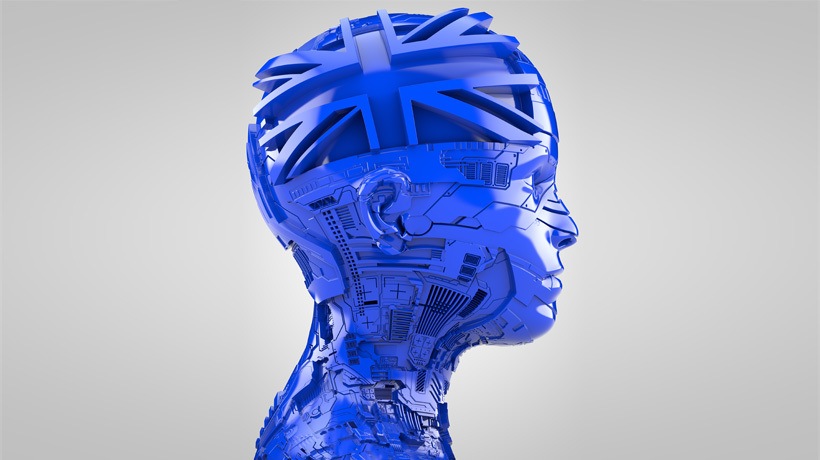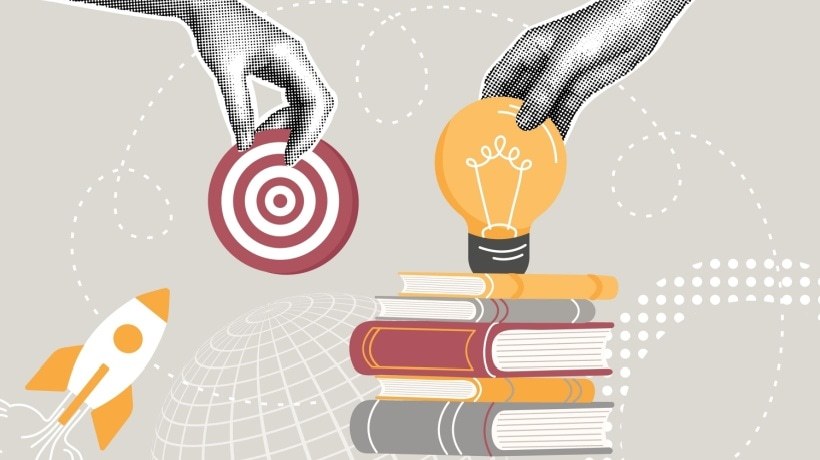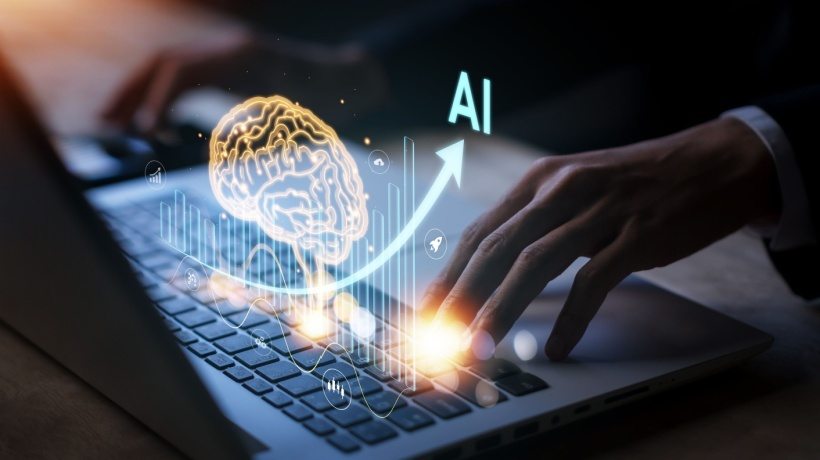AI And The Latest Learning Methodology
According to Forbes magazine, "85% of the interactions between a customer and a business will be through AI software by 2020." We as customers of Amazon, Google, Facebook, Microsoft, and Apple products are already interacting with AI, although we are not always aware of this interaction. The paradox of AI is that in spite of the massive strides in the area of AI, we say that AI is still in its infancy stage.
There are a number of companies that implement AI for learning English and/or other languages: Squirrel AI, iTutorGroup, Liulishuo, Edwin, Blue Canoe, Parla, TerraTalk, Elsa, etc. It is hard to determine the leader in this field. Two companies, Squirrel AI (SAI) and iTutorGroup (ITG), are using AI for learning English. SAI applies AI to facilitate adaptive learning, whereas ITG uses AI to enhance personalized learning. The iTutorGroup company announced on its website that it "hired Sophia as the first-ever AI tutor and invited her to explore the new era of online education together. AI in education means personalized learning."
Human Vs. Artificial Intelligence
If you were to observe a photo of Sophia, you may notice that she is version number 6 and can only do what the robot is programmed to do. What Sophia could not do for sure is to make discoveries that could be patented. It is also questionable how Sophia, the robot, could communicate with millions of learners. Don’t confuse an AI algorithm that can be used by millions of users simultaneously with an AI robot that has a hard-wired AI algorithm and a rather limited number of inputs and outputs.
Hanson, the creator of AI tutor Sophia, believes that he will be able to create an AI robot that would have emotions and the positive belief system characteristic of human beings. However, most AI experts believe that in his interview at the UN, where he stated that he plans to create a robot with emotions, Hanson expressed more of wishful thinking than a realistic goal. Yann LeCun, Chief AI scientist at Facebook, in his post writes that Hanson gives puppet shows which "reveal the fact that many people are being deceived into thinking that this (mechanically sophisticated) animatronic puppet is intelligent. It's not. It has no feelings, no opinions, and zero understanding of what it says. It's not hurt. It's a puppet."
The question to be answered is what should prevail: human intelligence or Artificial Intelligence? I strongly believe that the ultimate decision power should be given exclusively to human intelligence, whereas AI is given the power of processing large scientifically collected databases, finding the trends or producing answers based on the encyclopedia of knowledge. Only human beings have access to universal consciousness; AI doesn’t have a soul, empathy or access to the universal consciousness. AI works within a narrow domain, and it tends to be applied to specific areas, but the term has become very widely used for anything that includes some kind of decision-making process performed by computers.
The Method Of Subconscious Training
Although AI is capable of doing the automated evaluation of written and spoken text and of providing immediate feedback to learners, it remains questionable if correcting errors in pronunciation, grammar or sentence structure is useful when learning English. I agree with the statement published on the Glossika website: "If your pronunciation tutor is only telling you where you're going wrong, you're not going to improve." The belief that students can learn from error correction is wrong, because the errors are produced automatically, and they would be reproduced until the learners improve their English skills. In the course of subconscious training, learners acquire the ability to speak automatically without errors.
AI developers study the cognitive abilities of individuals to perform various mental activities associated with learning and problem-solving. AI programs are designed as all-knowing tutors capable of creating a personalized learning environment with the account of the latest discoveries in the field of cognitive abilities.
Thanks to the work of the Nobel Prize winner Daniel Kahneman and others, we now increasingly view our cognitive processes as being divided into two systems. We think slowly and fast because our cognitive capacity involves two different systems. System one operates automatically and quickly, with little or no effort and no sense of voluntary control. System two allocates attention to the effortful mental activity and therefore is slow. For example, conscious learning belongs to system two, whereas the expression of our feelings and thoughts (i.e., speech) belongs to system one.
So, to stop struggling with the acquisition of English, you should stop using the conventional methods of conscious learning (system two) and start using the subconscious training of English skills that belong to system one of our cognitive capacity. Driving a car, figure skating, playing a musical instrument, martial arts skills or speaking in English—all of these skills are trained as system one. During the subconscious training of English skills, the brain finds and records the language patterns that it can perform without conscious effort and with minimal attention (i.e., automatically).
The correction of pronunciation and grammar errors is counterproductive because it creates stress and automatically brings the learner into system two of our cognitive capacity. System two is by many orders of magnitude slower than the subconscious training controlled by system one.
The Importance Of Positive Indirect Feedback
I believe that giving learners a large volume of feedback based on error correction should be avoided and substituted with positive indirect feedback reflecting general progress toward all language skills. The new type of indirect feedback is based on testing active vocabulary and fluency.
Let’s consider the following example. Imagine one of your students incorrectly saying: "I am in a bad mood because I could not answer some questions on my teacher." An AI algorithm can easily correct this sentence; what it can’t do is to determine that speech belongs to system one, working fast with a rather limited conscious input. When we converse in our native language we speak automatically using associations and collocations which are produced automatically. To speak fluently in a foreign language, we need to practice collocations until they can be produced automatically.
Imagine that instead of correcting the above sentence, the AI algorithm will request the student to speak simultaneously with the recording: "I am in a good mood since I was able to answer all of my teacher’s questions." Repeat it a few times with increasing speed, so it sounds like naturally fast speech. While practicing simultaneous repetition of sentences with increasing speed, the learner’s brain acquires word chunks (linguists call them collocations), which usually go together. Later, the learner will be able to use these word chunks by associating them with similar situations. AI is designed to interact with each student, irrespectively of the number of students in the class. Properly designed AI allows students to create new lessons using authentic material available online and recorded by native speakers.
The Conditions Of Successfully Implementing AI In Learning
AI has great potential to create a personalized environment in which adult learners use all of their senses to simultaneously train English skills according to their current level of English or vocational needs or interests. However, be aware that the usage of a synthetic voice of AI robot should be limited to instructions and recommendations, whereas most lessons and drills should be recorded by native speakers because the emotional component of a human voice is mandatory for the subconscious training of correct pronunciation. The lessons offered by AI to adult learners should be based on authentic material and recorded by native speakers.
AI could not be applied to a stagnant field of knowledge and expected to come up with an innovative solution. Even master teachers of English have shown historically high failure rate because the conventional methods of teaching a foreign language don’t provide solutions to the following problems:
- How to avoid an appalling forgetting curve of the taught material.
- How to stop the innate habit of thinking in the native language and cross-translating, which are considered as the main barriers to fluency.
- How to acquire intuitive grammar that acts like a feeling of what is right and what is wrong. Compare it to the formal grammar rules remembered in the native language and impractical while speaking.
- How each student can create their lessons using a mobile application and applying simultaneous repetition to the new lessons.
In my opinion, adaptive or personalized learning with the help of AI is a great idea but the success of its implementation will depend on the incorporated methodology of learning. Applying AI to the conventional methods of teaching English that have a success rate of about 5% would not dramatically increase the success rate without changing the methodology of learning by introducing a new, more successful methodology.
It is not easy to evaluate the novelty of invention by reading a few articles. The intellectual property that I offer to assign for free provides a positive answer to all 4 problems listed above. This intellectual property is protected by two US patents and one pending patent in China; it also includes a detailed manual and a mobile application designed especially for Chinese adults learning English. There are two prerequisites for this proposal: the company should express an understanding of subconscious training English skills and the willingness to implement this intellectual property as a foundation of the AI solution for learning English.
Conclusion
AI could become the best tool for learning English, provided that the AI algorithm is based on new learning methodologies, such as the subconscious training of English skills. Subconscious training belongs to system one of the mind and is seven times faster than conventional conscious learning.









